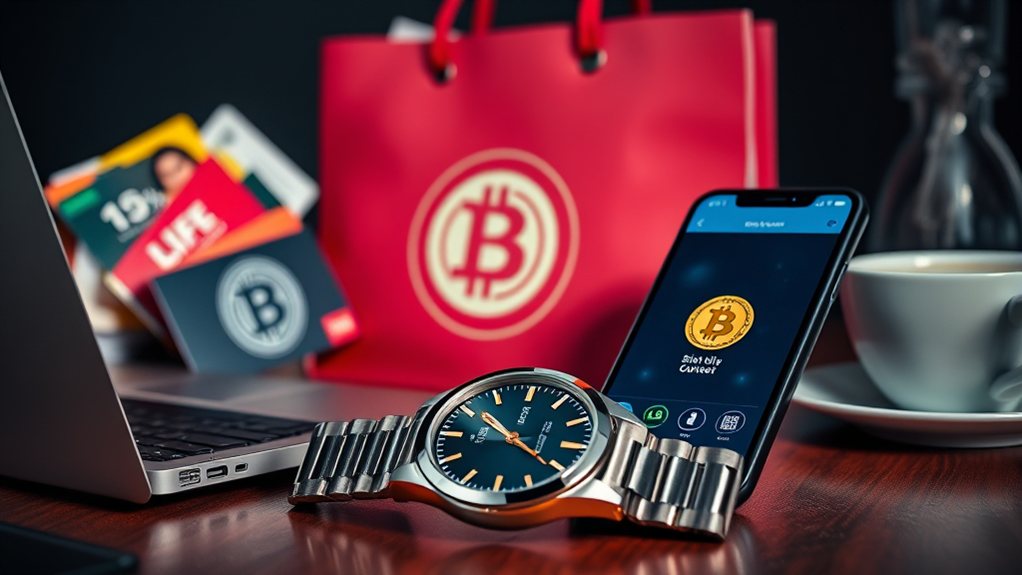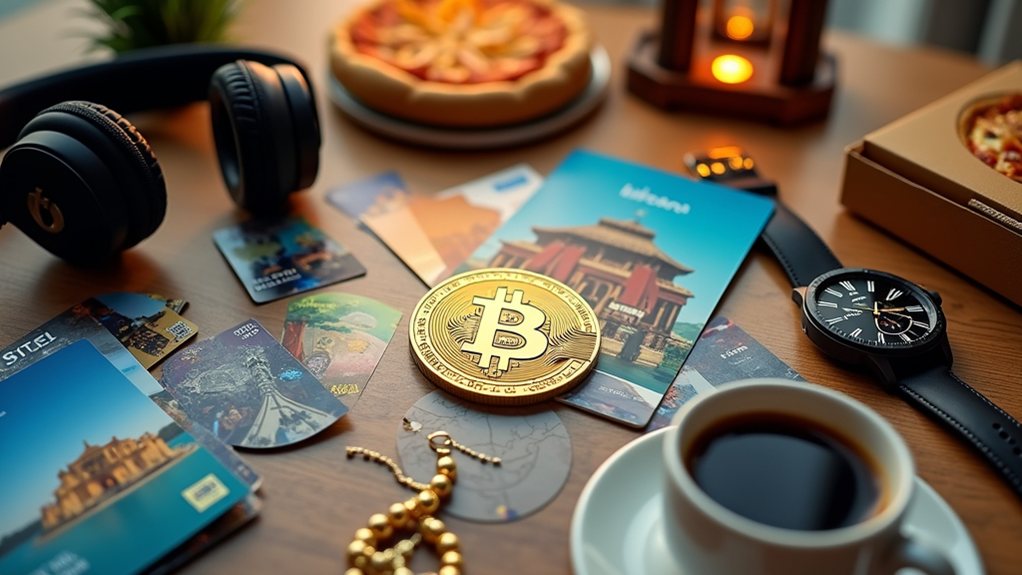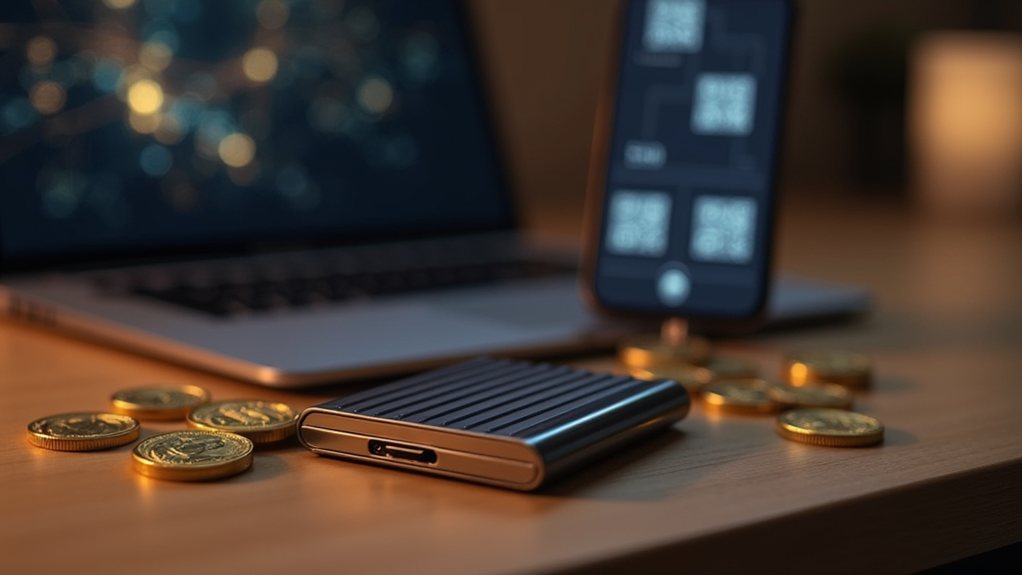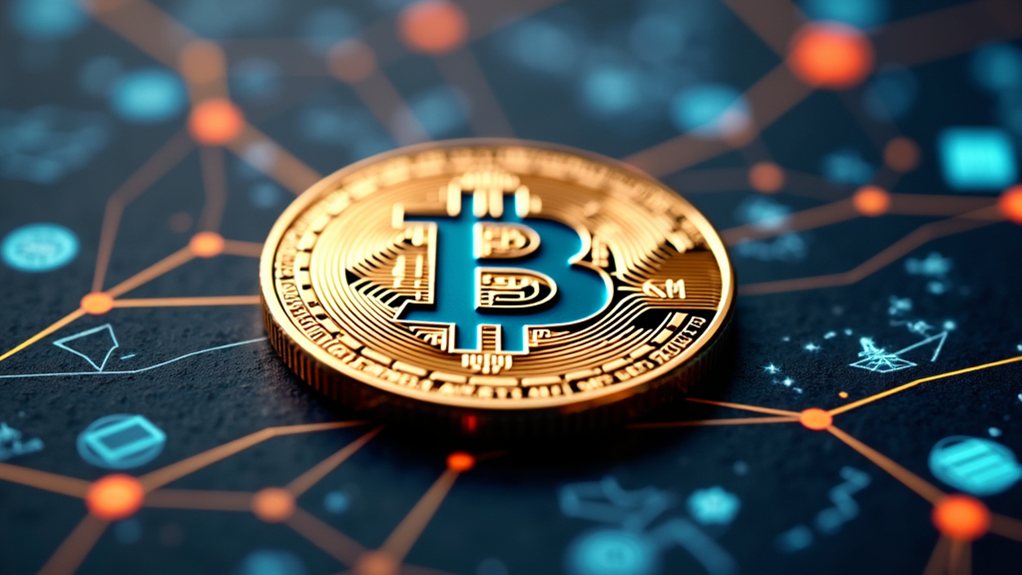Bitcoin's acceptance is growing across many sectors. People can use it to buy electronics at Newegg and Microsoft, book travel through Expedia, purchase food at select Pizza Hut and Burger King locations, and enjoy entertainment through Twitch and AMC Theaters. It's also accepted for services like VPNs, web hosting, and legal consultation. Some retailers offer luxury items including watches and jewelry for Bitcoin. The cryptocurrency marketplace continues to expand daily.

What Can You Buy With Bitcoin?
Where can you spend your Bitcoin these days? In the past few years, more companies have started accepting Bitcoin as payment. Now consumers can buy a wide range of products and services with this digital currency.
For shoppers who love technology, several retailers accept Bitcoin. Electronics fans can make purchases from Newegg and Microsoft. People can also buy gift cards for major brands through platforms like eGifter. Those looking to furnish their homes can shop at Overstock for furniture and home goods. Luxury shoppers aren't left out either – BitDials sells high-end watches and jewelry for Bitcoin. Some clothing and accessory stores also take crypto payments online. Home Depot has implemented Flexas checkout systems that allow customers to pay with Bitcoin.
Travel has become easier for Bitcoin holders. Expedia and Travala.com let customers book flights and hotels with crypto. Some car rental companies accept Bitcoin payments too. In certain cities, people can even buy public transportation tickets with it. Luxury travelers can charter private jets or book cruises using their Bitcoin on select services.
Food options for Bitcoin spenders keep growing. Pizza lovers can order from Pizza Hut in some locations. In Venezuela, some Burger King restaurants accept crypto payments. There are crypto-friendly restaurants around the world where diners can pay for meals with Bitcoin. Even some Starbucks locations take crypto for coffee and snacks. Grocery shopping is possible through gift cards purchased with Bitcoin.
Entertainment choices abound for Bitcoin users. Gamers can make purchases on Twitch. Some streaming services accept subscriptions paid in crypto. Movie fans can buy tickets at AMC Theaters with Bitcoin. TIME magazine offers subscriptions for crypto payments. Music and digital content are available on select online platforms.
Bitcoin can also buy big-ticket items like real estate. Houses, apartments, and land are for sale in crypto-friendly markets. Some landlords accept Bitcoin for rent payments. Vacation properties and commercial real estate investments are available to Bitcoin holders in certain areas. Real estate transactions using Bitcoin offer reduced fraud risk because of blockchain's tamper-proof transaction records.
Various services take Bitcoin payments too. VPN providers like ExpressVPN accept crypto. Web hosting and domain registration services allow Bitcoin payments. Some law firms take crypto for legal services. Select insurance companies let customers pay premiums with Bitcoin. Specialized payment services help people pay bills using cryptocurrency.
Investors can use Bitcoin to buy financial products. Some trading platforms allow purchases of stocks and ETFs. Precious metals like gold and silver are available for Bitcoin. Cryptocurrency mining equipment can be bought with the digital currency. NFTs and digital collectibles have become popular purchases. Bitcoin holders can also make donations to charities that accept cryptocurrency.
Frequently Asked Questions
Is Bitcoin Legal in All Countries?
Bitcoin isn't legal in all countries.
It's fully legal in 119 countries including the US, UK, Canada, and Japan. El Salvador even uses it as legal tender.
However, 17 countries have partial restrictions, including China and Russia.
Bitcoin is completely banned in 22 nations such as Egypt, Bangladesh, and Bolivia.
The global regulatory landscape continues to evolve, with 70% of countries developing new crypto rules.
How Do I Store My Bitcoin Securely?
Bitcoin can be stored securely using three main methods.
Hardware wallets offer maximum security by keeping private keys offline, but cost $50-$200.
Software wallets on phones or computers provide convenience for frequent transactions but face hacking risks.
Paper wallets are free, completely offline options that require careful handling.
Most experts recommend keeping small amounts in software wallets and larger holdings in hardware or paper wallets.
What Are the Tax Implications of Spending Bitcoin?
Spending Bitcoin triggers tax consequences. Each purchase creates a "taxable event" where capital gains tax applies. The IRS views it as selling an asset.
Taxpayers must track their original purchase price and Bitcoin's value when spent. The difference is taxable.
Bitcoin held less than a year faces higher short-term rates. Holdings over one year qualify for lower long-term rates.
Sales tax also applies in most jurisdictions.
Can I Convert Bitcoin Back to Regular Currency Easily?
Converting Bitcoin to regular currency is relatively straightforward.
Users can sell Bitcoin on centralized exchanges like Coinbase, which typically process transactions in 1-5 business days with fees between 0.5-5%.
Peer-to-peer platforms offer potentially lower fees of 0.5-1%.
Bitcoin ATMs provide instant cash but charge higher fees (5-15%).
Crypto debit cards allow direct spending and ATM withdrawals.
All methods generally require some form of ID verification.
How Volatile Is Bitcoin's Value for Everyday Purchases?
Bitcoin's value is highly volatile for everyday purchases. Its price can swing 10% or more in a single day, making it difficult to reliably price goods.
The cryptocurrency's 30-day volatility averaged 60-70% in recent years, compared to just 15% for the S&P 500. This unpredictability creates risks for both buyers and sellers, as the value can change considerably between transaction and settlement times.














